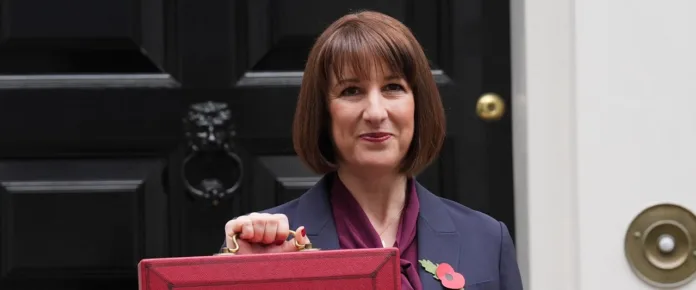New tax measures targeting private jet use could complicate travel for the Duke and Duchess of Sussex, amid broader climate concerns.
In a move that has garnered significant attention, Chancellor of the Exchequer Rachel Reeves unveiled her Autumn Budget for 2024, which includes a dramatic increase in taxes on private jet travel. This change is poised to affect high-profile individuals, notably Prince Harry and Meghan Markle, who often utilise private aircraft for their travels.
The Chancellor announced a staggering 50% increase in private jet air passenger duties, now set at £450 per passenger. This measure, part of a wider £40 million package of tax reforms, aims to address issues of fairness and environmental impact within the aviation sector. Reeves, speaking to Parliament, remarked on the implications of this tax hike, stating, “That is equivalent to £450 per passenger for a private jet to say… California,” a comment perceived as a direct reference to the couple’s current residence in the Golden State.
This announcement comes at a time when the Duke and Duchess of Sussex have faced scrutiny for their travel choices. While they have occasionally flown commercially, their use of private jets has drawn criticism, particularly regarding environmental concerns. The new tax structure reflects a growing awareness of the ecological footprint associated with private air travel, which, according to Transport & Environment, can be up to 14 times more polluting per passenger than commercial flights and 50 times more so than train journeys.
Reeves justified the hike by pointing out that Air Passenger Duty (APD) has not kept pace with inflation in recent years, indicating a need for reform. In contrast to the hefty increase for private jets, the rise in commercial air travel taxes is minimal, with short-haul economy flights seeing an increase of just £2. This disparity highlights the government’s strategy to target wealthy individuals and corporations that frequently charter private flights.
The Chancellor’s remarks about California were not only aimed at Harry and Meghan but can also be interpreted as a subtle critique of former Prime Minister Rishi Sunak, who has reportedly made extensive use of private aircraft for domestic travel. By linking the tax increase to high-profile figures, Reeves has stirred public interest in the broader implications of such travel, particularly in light of the UK’s commitment to addressing climate change.
The decision to impose heavier taxes on private jets aligns with a broader governmental strategy to enhance environmental accountability. As part of the budget, plans are in place to gradually increase the rates of APD across all flight classes by 2026-27, with private jets facing the steepest rises. This approach not only aims to bolster the nation’s climate policies but also seeks to generate additional revenue that can be channelled into sustainability initiatives.
As public sentiment continues to evolve regarding the environmental impacts of luxury travel, this budgetary move places Prince Harry and Meghan Markle at the centre of a broader debate about privilege, accountability, and the responsibilities of the wealthy. The couple’s previous use of private jets has often been viewed through a critical lens, and this latest tax development will likely reignite discussions about their travel habits.
With these new measures in place, the couple may need to reconsider their travel arrangements or face a significant financial impact. The introduction of such a tax also raises questions about the future of luxury travel in a climate-conscious world, particularly as governments worldwide tighten regulations surrounding private air travel.
Ultimately, Chancellor Rachel Reeves’ budget reflects not only fiscal responsibility but also a growing urgency to address climate concerns. As high-profile figures like Prince Harry and Meghan navigate the new financial landscape, they will need to balance their personal choices with the public’s increasing expectation for accountability and sustainability
